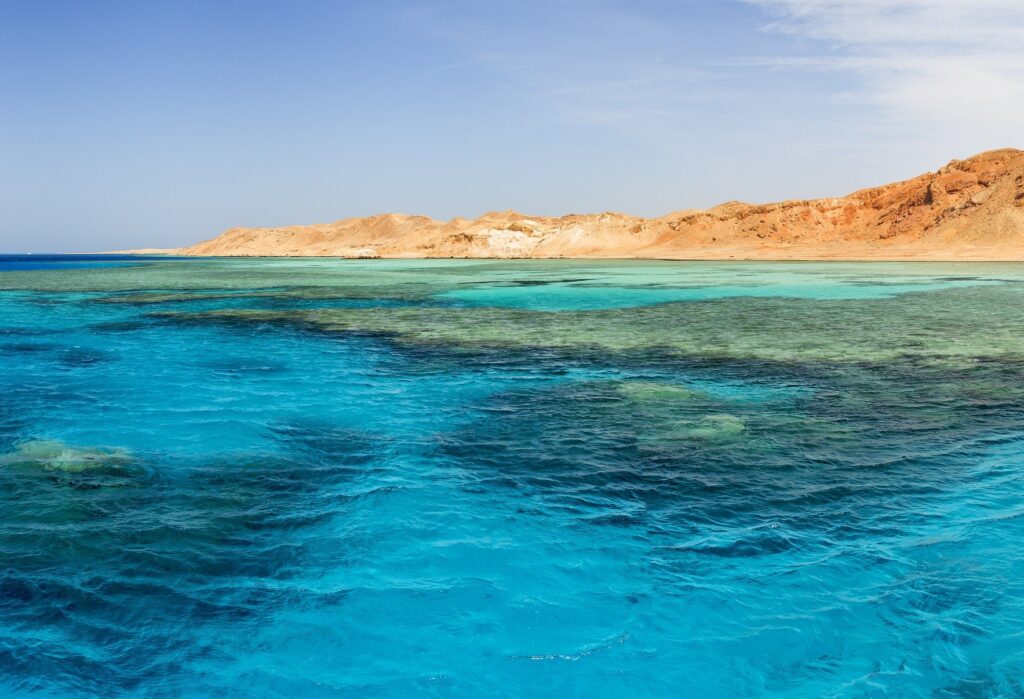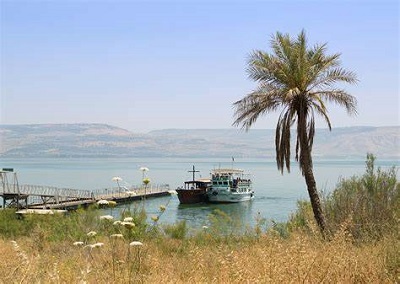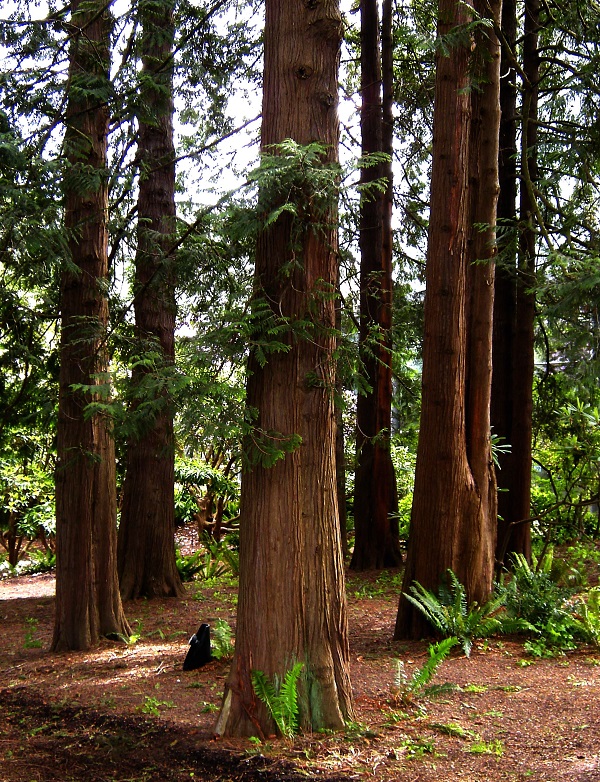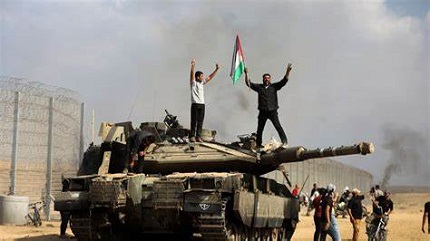By Chika Abanobi
#Red sea
In the past one year, it has been mentioned several times in the news in the ongoing war between Israel and Hamas. This is so because the Houthi militants, who control Yemen, one of the eight basin countries with direct access to the Red Sea, had vowed to attack any ship passing through the country’s axis of the sea while taking supplies to Israel.
The militants had been engaged in a seemingly unending war with Saudi Arabia over control of Sanaa, their country’s capital. They are also part of the “axis of resistance” being armed and financed by Iran.
Before they began their attacks on cargo ships passing through that region to Israel, they explained that they were taking action in support of Hamas and the Palestinian cause. Like Hezbollah did, they added that they will only stop the attacks when Israel stops its own attacks in Gaza and the West Bank.

The Rage on the Red Sea
And, despite the coalition efforts by the United States, Britain, and France to stop them, from continuing to do so, by deploying their Air Forces on regular patrols of the Red Sea, and on search-and-destroy missions, the Houthi militants have continued to target with missiles, explosives drones and rockets, cargo ships suspected of carrying supplies to Israel.
Like with the news coming out of the Middle East region in recent times, the Red Sea is also mentioned several times in the Bible (Exodus 10:19; 13:18; Numbers 14:25; Deuteronomy 1:1; Joshua 2:10; Judges 11:16; Psalm 106:7; Hebrews 11:29). But the most popular of the mentions is the miraculous parting and crossing of the sea by the Israelites, under the leadership of Moses (Exodus 14:15-31).
One of the seas of colours
The sea, bounded by eight countries, namely, Djibouti, Egypt, Eritrea, Israel, Jordan, Saudi Arabia, Sudan and Yemen, empties into the Indian Ocean. Known by oceanographers and geographers with different names, it is one of the four seas in the world named in English after common colours.
Others are the Black Sea, bounded by Bulgaria, Georgia, Romania, Russia, Turkey, and Ukraine; the White Sea, located on the northwest coast of Russia and the Yellow Sea, also known as the North Sea, between mainland China and the Korean Peninsula.
#GALILEE
Like other Israeli-Palestinian towns, Galilee has been in the news since the beginning of the war. In fact, as you read this, the town, located in the northern part of Israel and which has the same hilly/rocky topography and climate as some states in Northern Nigeria – Plateau, Nassarawa, Adamawa, etc – is, right now, in the eye of the storm, in the war of attrition going on between Israel and Hezbollah.
Because of its mountainous terrain, some parts are regarded as Upper Galilee while the lower regions are known as Lower Galilee. But rockets, drones, and other projectiles being launched into different parts of the city by Hezbollah militants who have vowed to continue to do so until Israel stops their bombings against Gaza, have made some communities living around the axis vacate to safer places.

Galilee in headline news
Even with that precaution, the place is far from being safe. Newspaper headlines from around the world have continued to announce so: “Hezbollah pounds Galilee with over 100 rockets, causing heavy damage”; “Lebanese Hezbollah fires rockets at Israeli positions in Upper Galilee amid border tensions”; “Hezbollah fires 30 rockets at Western Galilee” and “Hezbollah drone hits Galilee after overnight barrage, sparks forest fire.”
On how serious the deteriorating security situation is, the other day, on Thursday, October 3, 2024, an explosive-laden drone launched from Iraq, landed in the part of the city called Golan Heights and killed two Israeli soldiers and wounded 24.
But as they say, there is no killing the beetle! One of Israel’s elite commando units, the Golani Brigade, is based in Galilee. These are men and women who are schooled in the art of warfare; brave fighters who are trained to handle assault rifles and other war weapons like toys. They are fearless fighting corps trained on how to confront men armed with automatic rifles, knives, and explosives, disarm and defeat them! Others see death and run; death sees these and runs!
City with a lot of Bible history
In both the Old and New Testaments of the Bible, Galilee has a lot of history behind it. Starting from the Old Testament, Mount Carmel is located in Galilee. This was where Elijah confronted and defeated the prophets of Baal (1 Kings 18:19-42).
So is Mount Gilboa where King Saul, Jonathan, and his other sons lost their lives in a battle with the Philistines (1 Samuel 31:1,8; 2 Samuel 1:6, 20,21).
Other mountains you find here include Mount Hermon (Deuteronomy 3:8; Joshua 11:17; 12:1; Psalm 133:3). Bible scholars say that, in ancient Israel’s partitioning of the Promised Land, the portions allotted to Dan, Zebulun, and Naphtali may be found here (Matthew 4:12-16).
This is the place where Deborah and Barak had their miraculous victory over Jabin and Sisera (Judges 4:1-24). When King Solomon decided to reward Hiram, King of Tyre (in Lebanon), trade-by-barter style, for supplying him with cedar logs, fire trees and gold with which he built the Temple, Galilee was the place he gave to him (1 Kings 9: 11-13).
In the New Testament, this is the place where Jesus performed His first miracle, by turning water into wine (John 2:1-11). This is where He preached the great Sermon on the Mount (Matthew 4:25), which spanned three chapters of the Bible (Matthew 5, 6 and 7). This is where He called His first four disciples: Simon Peter, Andrew, James, and John (Matthew 4:18-22).
Other incidents that took place at Galilee in the course of Jesus’ earthly ministry include the miracle of the great catch after Simon Peter and others had toiled all night without catching anything (Luke 5:1-11), walking on the water (Matthew 14: 22-32; Mark 6:45-56) and rebuking the great storm (Mark 4:36-41).
Its geographical and geological beauties
The modern city of Galilee is said to be divided into three parts, namely:
- The Upper Galilee which extends from the Beit HaKerem northwards into Southern Lebanon. Its eastern border is the Hula Valley and the Sea of Galilee separating it from the Golan Heights. To the west is the coastal plain separating it from the Mediterranean Sea
- The Lower Galilee is bordered by the Jordan Rift Valley, the Arab city of Nazareth, and the village of Cana.
- The Galilee Panhandle, aka “Finger of Galilee”, is situated between the Golan Heights and the Lebanese border.
One of the things geographers praise Galilee for is its natural richness as seen in its rocky terrain, high mountains, low temperatures, high rainfall, and clement weather.
As a result of its good climate, beautiful flora and fauna thrive here. In Upper Galilee, there are vast fields of greenery and colourful wildflowers. There is also the Lebanese cedar and the prickly juniper trees under which Elijah once begged God to take his life (I Kings 19:4). Ornithologists say that, from time to time, exotic birds take off from Galilee to Africa and back.
#LEBANON
You must have read how Hiram, King of Tyre (in those days when the world was divided according to kingdoms, much smaller than nation-states we have now), supplied King Solomon with logs of wood from the cedar and fir trees with which he built the Temple and his palace.
In 1 Kings chapter 5, we read how Solomon sent men, 30,000, from Israel not only to help with felling the trees in Lebanon but to also transport them by sea to Israel.
Records show that he sent them in rotational batches of 10,000 men per month. Besides, Solomon had 70,000 carriers, 4,000 loggers, and 3,300 supervisors “over the people that wrought the work.”

Cedar strength for owners of cedar tree
In those days, Lebanon was famous for its cedar tree, said to grow up to 30-40m and, occasionally 60 m tall. Its spicy-resinous scented wood, thick ridged or square-cracked bark, and broad, level branches are highly prized qualities users like the wood from the tree for.
Even today the country is still famous for the tree reputed to grow in the mountains of the western Himalayas and the Mediterranean region. It is such that it has become something symbolic by being drawn on the Lebanese red-and-white flag. It is a symbol of the country’s resilience in the face of fractious wars, battles, and political turmoil. But in the course of the current Israel-Hamas war, the story seemed to have changed. Watchers say to look well! It is no longer highly skilled and able-bodied men from Solomon going into Lebanon to cut and carry logs of wood.
Nowadays, it is battle-hardened soldiers of the Israeli Defence Forces (IDF), aided by battle tanks, armoured personnel carriers, troop carriers, anti-tanks, military drones, and Israeli Air Force, going into Southern Lebanon, to smoke out Hezbollah militant fighters.
The militants are said to have turned the place into dens of rockets and other projectiles, Improvised Explosive Devices (IEDs) and stockpiles of other war paraphernalia.
Sent by Prime Minister, Benjamin Netanyahu and the National Security Cabinet of Israel, the military incursion which has been described as a “limited ground operation” began some weeks ago. It came with a devastating airstrikes, on September 24, 2024, that took out most of the high and middle-level commanders, including the overall Head of Hezbollah.
Historians say it marks the fourth time that Israeli soldiers have publicly entered Lebanese soil in nearly 50 years, and the first since Israel’s 34-day war with Hezbollah in 2006.
Cycle of violence for a city of violence
So? Return the logs of wood, if you still have them, and replace them with small explosive batteries purposely designed for pagers and walkie-talkies. Or, best still, “you hypocrite, first take the log out your own eye, and then you will see clearly to take the speck out your brother’s eye” (Matthew 7: 5, English Standard Version, ESV)
It seems Lebanon, which means “white” because of snow-capped peaks usually found there (Jeremiah 18:14), has, from time immemorial, been known for violence.
Bible commentators say that this must have been the reason Habakkuk said: “The violence of Lebanon shall cover thee” (Habakkuk 2:15). They opine that this is one prayer nobody should say Amen to!
- Abanobi, pioneer staff, Weekend Concord, former Associate Editor, The Sun newspaper, Lagos, and winner of Governor Olusegun Mimiko Prize for Foreign News Reporter of the Year: 2018 Nigeria Media Merit Award (NMMA) is member, Journalists for Christ International Fellowship. All rights reserved. No part of this write-up should be republished without the author’s permission.


